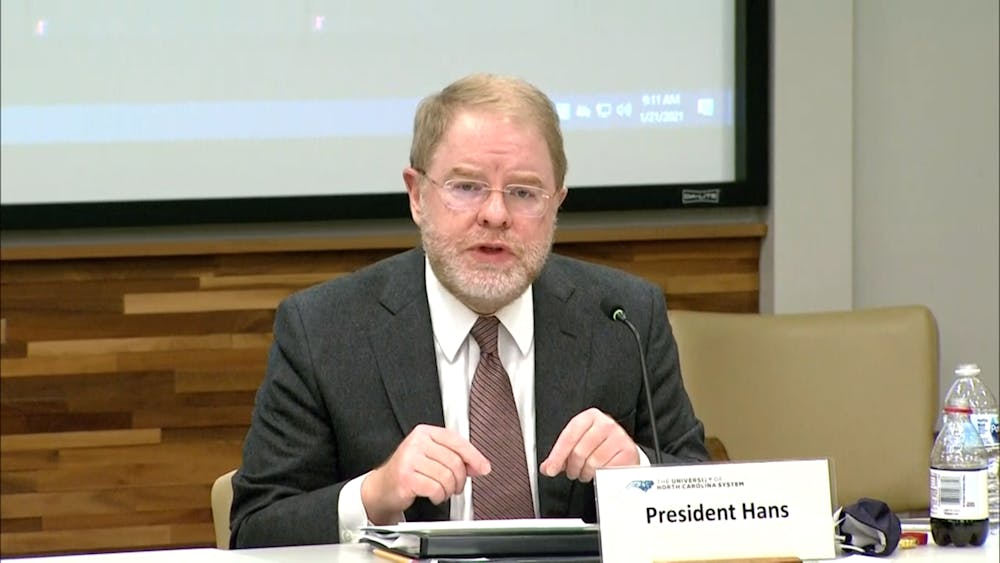The North Carolina General Assembly is attempting to give the UNC System greater flexibility to deal with COVID-19 financial impacts by granting the UNC-System president the power to implement temporary across-the-board salary reductions and layoffs.
House Bill 243 passed unanimously in the House late last month, and it has since moved on to the Senate. Along with an early retirement incentive program, the salary-reduction powers would be granted to President Peter Hans, with the potential to be delegated to chancellors, raising concerns about faculty pay and the president's power.
Mimi Chapman, chairperson of the faculty at UNC-Chapel Hill, said the devil is in the implementation, since the way that power ends up being wielded and the respect the system shows for individual campuses is a question that is concerning to people.
“Having more local control at the campus level is a good thing as long as the folks at the campus level — the administration — is listening to the voices of faculty, and staff and students as they make budgetary decisions,” Chapman said. “In some ways, the legislature creating more flexibility, that's not a bad thing.”
She said she does not like the idea of the System making across-the-board decisions that could affect UNC-CH in the same ways as other campuses that are situated very differently.
Becci Menghini, vice chancellor for Human Resources & Equal Opportunity and Compliance, said at the March Faculty Council meeting that the bill was drafted several months ago along with the System office’s legislative priorities.
She said the bill seems scarier than it actually is since it just provides tools that could be used if necessary moving forward.
Menghini said in a statement to The Daily Tar Heel that the University does not expect to conduct broad furloughs, layoffs or across-the-board salary reductions.
“Because of the early mitigation steps the University took at the start of the pandemic, such as only filling critical vacant positions and closely reviewing spending requests, and the hard work of units across the University to enact budget reductions in a strategic and thoughtful manner, we don’t expect to need to use such blunt tools,” Menghini said.



